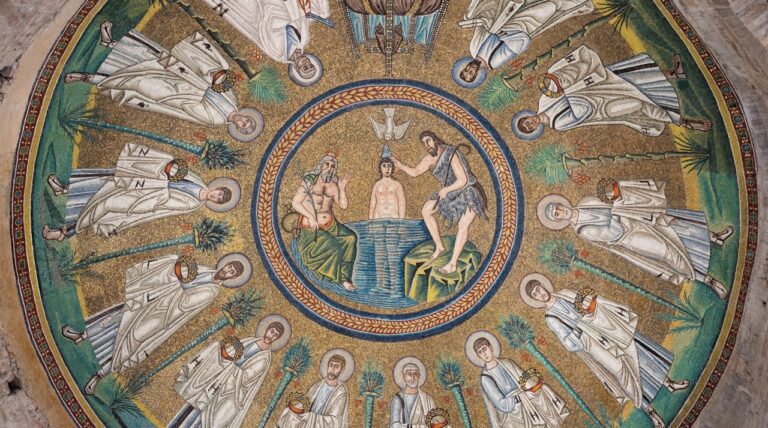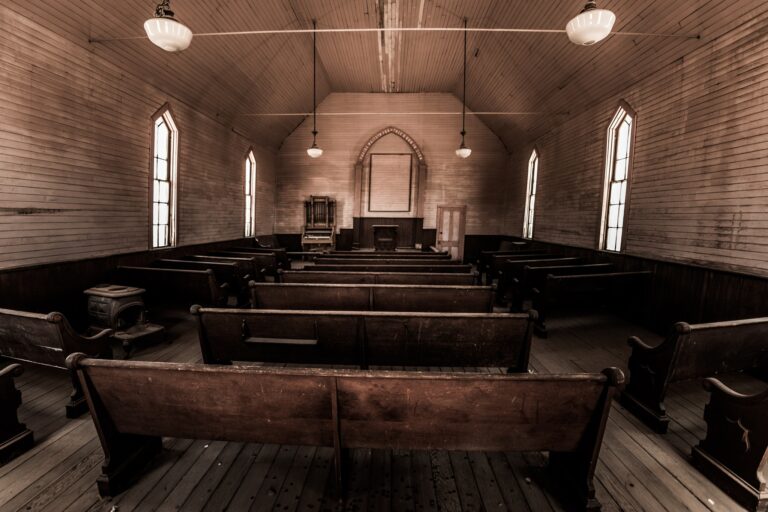“Get out!” he shouted.
I remember sitting in church as a single man some 15 years ago and watching in shock as the singles pastor screamed those words as he threw a chair across the stage, mid-sermon. He was a big guy and the chair went soaring. It was an unforgettable moment.
His topic that night was Jesus’ cleansing the temple. The chair toss was his attempt at demonstrating the intensity with which Jesus drove the people and animals from the temple that day.
A few weeks ago I preached on John’s account of that moment from the life of Jesus. I recalled that night at the church in Charlotte, North Carolina, when my breath was taken away. Not just because the pastor chucked the chair, but because of the thought that Jesus, was capable of such.
When Jesus makes a whip of cords, flips tables, scatters animals, and is consumed with zeal, it doesn’t jive with the Jesus we are told about in a great many churches today.
For many people in the church (and outside the church too, for that matter), Jesus is viewed as a tame, tolerant, laid-back, easy-going, softy, who is almost impossible to rattle.
The people in the temple that day would have laughed at this depiction of Christ.
What Pushes Jesus’ Buttons?
But what was it that made Jesus so angry that day?
Or better yet, what makes Jesus angry on any day? What pushes his buttons?
Clearly, we see from John 2 (and the other accounts of that story, see Matt. 21:12-17; Mark 11:15-19; Luke 19:45-48), that Jesus is capable of anger, but what is it that provokes him?
When we looked at this passage a few weeks ago at Red Door Church where I’m pastor, I arrived at the conclusion that it wasn’t just what the merchants were doing that day (selling animals for sacrifice, changing money, etc.), but it was because their commerce made the space unfit for worship. With hundreds of animals bleating, chirping, and defecating all over the courtyard, and with merchants vying for your business, who could focus on God? With so many competing voices, who could hear the still, small voice of their Maker?
Jesus was angry because the commerce was keeping people from worshipping God.
The Other Time Jesus Got Really Mad
But the temple scene wasn’t Jesus’ only angry moment. Take a minute and go read Matthew 23.
Jesus communicates in Matthew 23 his disdain for the Pharisees and scribes of his day. We read in verses 13 and 15 of that chapter these words:
““But woe to you, scribes and Pharisees, hypocrites! For you shut the kingdom of heaven in people’s faces. For you neither enter yourselves nor allow those who would enter to go in. Woe to you, scribes and Pharisees, hypocrites! For you travel across sea and land to make a single proselyte, and when he becomes a proselyte, you make him twice as much a child of hell as yourselves.”
Jesus’ rage is once again kindled because people are keeping others from worship. In this case, the scribes and Pharisees, who “shut the kingdom of heaven” to those who would desire to enter.
But how? The Pharisees are not ones to sell animals outside the temple and the scribes are not setting up booths for changing of currencies, so what is it that they are doing to get in the way of the devotion of the people?
They were misusing the law.
The money changers were misusing the temple. The Pharisees and the scribes were misusing the law.
Instead of seeing God’s heart in the law, they saw it as a ladder–a way to climb to God. And the Pharisees were really good climbers. As they outwardly obeyed God’s standards they began to feel superior to others. They got to be so good at following all the rules, they even began to make up new ones!
The problem is, they missed the entire spirit of the law. The law was intended to help people see their brokenness and need for God’s mercy and thus lead them to repentance (see Galatians 3:24). As they drew near to God in repentance He would draw near to the worshipper in love and grace and compassion. In the end, they would see life as a parable of a loving, heavenly Father, providing any and every need for the children he loved.1
The Pharisees missed the love of God because they were simply going to grit their teeth and white-knuckle it into the Kingdom (and insist that everyone else do it the same).
Not only was it impossible to enter the kingdom that way (for no one is righteous enough)2, in Jesus’ mind, this was an out and out rejection of the love of God.
God loved the world so much he intended to give Himself up as a sacrifice to save it. But the Pharisees didn’t need a savior; their works would commend them to God. Their “savior” was the law of Moses.
The tablets of stone, however, were cold and unforgiving (which is why the Pharisees were cold and unforgiving).
If you were to feel any warmth or any love from the law, you had to look through it to the God who gave it.
You must try and understand why He gave it.
The Spirit of the Law
The why of the law leads us to something often called the “spirit” of the law. To understand the spirit of the law you must understand its goal.3
Most of us just think of laws as rules to obey. The goal, therefore, is just obedience. But this is an overly superficial way of thinking about laws.
To understand how a law can have a different aim than just obedience, let’s take a modern day example. Driving the speed limit.
Let’s start with the question: what is the point of having speed limits at all?
The point is not just for local police to have a reason to pull people over and for the state to make money off of tickets (though some would argue that). The point is to create roads that are safer–roads where accidents are less likely to happen. Underneath that point, is a respect for life. Accidents are bad and very often cause great pain and even ruin lives. The spirit of the law is a respect for life (and property). So when we obey traffic laws, it’s not just about raw obedience to some arbitrary standard that local authorities put into place, it’s about a respect for life and property. It’s about the idea that I don’t want my neighbor to have to go through the agony of losing someone in a car accident, especially not at my hands.4 These laws are established not to be repressive, but because of love for self and neighbor.
The Pharisees, the teachers of Israel5, missed the true spirit of the law by making it about achievement and raw, external performance. They used the law as a ladder to look down on others and to climb up to God.6 But as we’ve seen already (above), the law was intended to lead people to repentance and into the arms of a loving, merciful, God.
This is the kind of stuff that made Jesus start turning over tables. Once again, someone is standing in the way of worshippers wanting to encounter God.
Jesus Zealous for Us to See God’s Love
In both the cleansing of the temple and in the denouncing of the Pharisees and scribes, Jesus is angry for one reason: His people are being kept from worship.
So when we see the angry side of Jesus in Scripture we should see our God’s passion and zeal to let nothing stand in the way of His people’s knowing and understanding the depth of God’s love for them.7
- For the Christian, this all culminates in Jesus Christ. See Romans 10:4 and Galatians 3:24. ↵
- This was clear from the Old Testament which would have been the “bible” of the Pharisees. See passages like Psalms 5:9; 14:1-3; 36:1; 53:1; 140:3; Isaiah 59:7, 8. ↵
- We know from Scripture, that the goal of the law was not achievement. It was not given to us so that we could achieve something, i.e., for us to merit or earn bragging rights over others or God’s approval or entry into Heaven. We know this because Jesus makes it clear in the Sermon on the Mount (Matthew 5 through 7), that raw, external obedience is not enough. A mere lustful thought after a woman that is not your wife is adulterous in the eyes of God (see Matt. 5:28). No one can keep the law in this way perfectly, not even the Pharisees who were masters of external, outward obedience (on the inside, they were rotten, see Matt. 23:25-28). If God gave us such a law as a means to some kind of achievement, then it was a massive failure. ↵
- This is why most police, rightly, won’t (and I will argue, shouldn’t) pull you over if you are going just a few miles per hour over the speed limit. If you’re driving under control, are on the correct side of the road, are paying attention, and are not swerving all over the place, have your lights on at the proper time or your wipers in rainy weather, and so on, then it’s fair to say, that the spirit of the law is being kept, though the letter of the law may not be. If you drive 68 in a 65 mile per hour lane, it does not necessarily mean that you have no respect for the law or its spirit, namely, to protect life and property. Which is why the police do not pull people over for every single infraction. ↵
- See John 3:10 when Jesus calls Nicodemus, a Pharisee, “Israel’s teacher.” ↵
- In the minds of the Pharisees, if a person did not tithe even their spices to God, they were not being faithful. If a person, went out to help a neighbor or a friend in need on the Sabbath day, or picked a single head of grain and ate it as they passed by, they were in violation of God’s laws. If a person did not wash their hands properly, then they were in violation of God’s laws. If a person even associated with people who did not perfectly keep God’s laws, people they called “sinners” at the time, then they were in violation of God’s laws. ↵
- That is not to say that we should not also see God’s infinite hatred of sin. My point here in this post is to draw attention to the fact that even in Jesus’ anger we can see the love of God for His people. ↵



